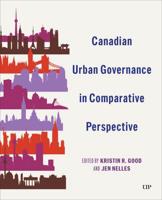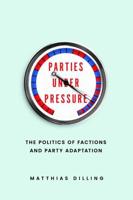Publisher's Synopsis
A strong analytic framework coupled with unparalleled country coverage has proven Politics in Europe to be a friendly, yet rigorous introduction to the region. With more in-depth discussions of democratization, globalization, and further Europeanization in each country section, the authors have fully updated and revised chapters to bring insightful and current assessment of recent events and developments in Europe. Because the authors follow a consistent thematic structure in their country sections--Where is the power? Who has the power? How is the power used?--students not only get a firm grounding in the major actors, institutions and policies of each country, but are able to make meaningful cross-national comparisons.Changes to the fourth edition include:New authors: Raffaella Nanetti contributes the country section on Italy, Christopher Carman joins B.Guy Peters on the United Kingdom chapters, and Marjorie Castle writes on Poland, bringing fresh perspective and insight to a trusted, class-tested volume.New country section: the addition of Poland highlights an important example of the post-communist transition to democracy and capitalism in Central Europe.Revamped policy chapters: a focus on common policy areas&BAD:mdash;allowing as much cross-national comparison as possible&BAD:mdash;gives students a look into such important and hot-button issues as immigration and citizenship, economic development and performance, religious cleavages, human rights and minority issues, and security concerns. Updated elections analysis: an assessment of recent election results&BAD:mdash;in Sweden and Germany (2002); to the European Parliament (2004); in the United Kingdom, and Germany, and Poland (2005), and Italy (2006)&BAD:mdash;as well as perspectives on forthcoming elections in Russia, France, and Sweden, offer a comprehensive picture of Europeans at the polls. Expanded treatment of political parties: thorough updating in all country sections includes the continued flux in the Russian party system, the center-left challenge to Berlusconi in Italy, the formation of a new left alliance in Germany, and anti-EU and feminist parties in Sweden. Extensive revision of the EU: new discussion of the European Union&BAD:rsquo;s 2004 expansion from 15 to 25 member-states, its draft constitution as well as its rejection by voters in France and the Netherlands, the ongoing budgetary debate, and a greater emphasis on policy issues and outcomes. Updated statistical appendices: handy tables and figures feature current, comparative data on politics, economics, and social conditions in all eight countries. New website: annotated links to valuable resources are a great starting point for current events, study, review, and research projects.










